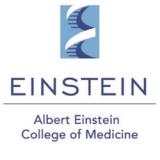
Einstein-Mount Sinai Diabetes Research Center
1300 Morris Park Avenue
Bronx, NY 10461
United States

Einstein-Mount Sinai Diabetes Research Center
1300 Morris Park Avenue
Bronx, NY 10461
United States
The Einstein-Mount Sinai Diabetes Research Center (ES-DRC) comprises a vibrant, extensive, diverse, well-funded and highly productive program that provides the foundation for high-quality and cutting-edge research in diabetes and related studies in obesity, metabolism and endocrinology. The mission of the Einstein-Mount Sinai Diabetes Research Center (ES-DRC)—a joint project of Albert Einstein College of Medicine and Icahn School of Medicine at Mount Sinai—is to conduct basic, translational, behavioral, and clinical research into type 1 and type 2 diabetes and related metabolic conditions.
Studies at ES-DRC fall into six major interrelated areas:
The ES-DRC also includes:
All told, ES-DRC comprises more than 100 independent laboratories—a scientific base that serves as resource for diabetes investigators nationwide. Our researchers collaborate with investigators at New York University, Weill Cornell Medical College, Cornell University, New York Medical College, Winthrop University Hospital, Stony Brook University, and Hunter College.
In additional to the National Institutes of Health, ES-DRC interacts with and provides collaborative research support to the New York Obesity Research Center and the Center for the Study of Diabetic Complications.